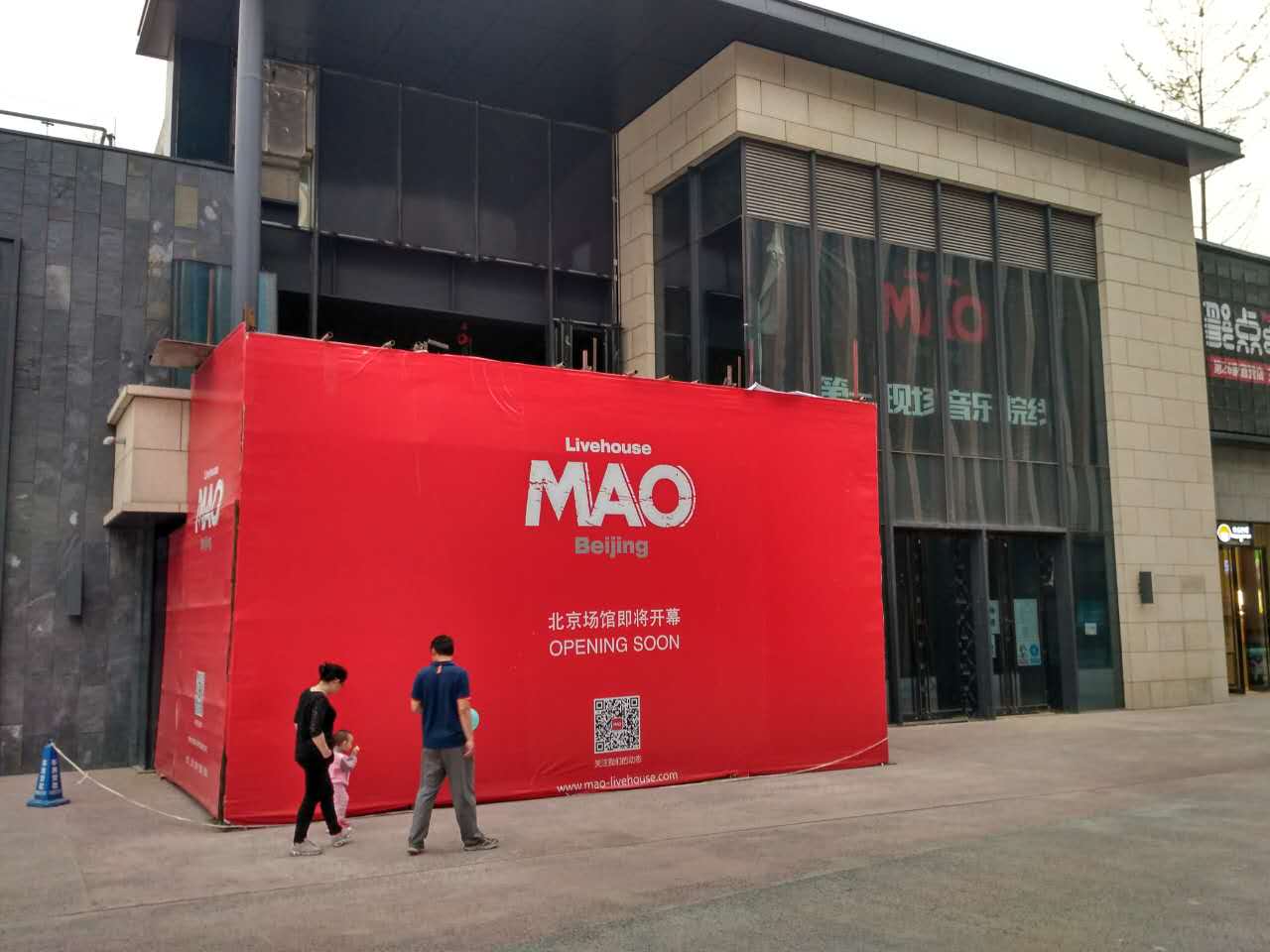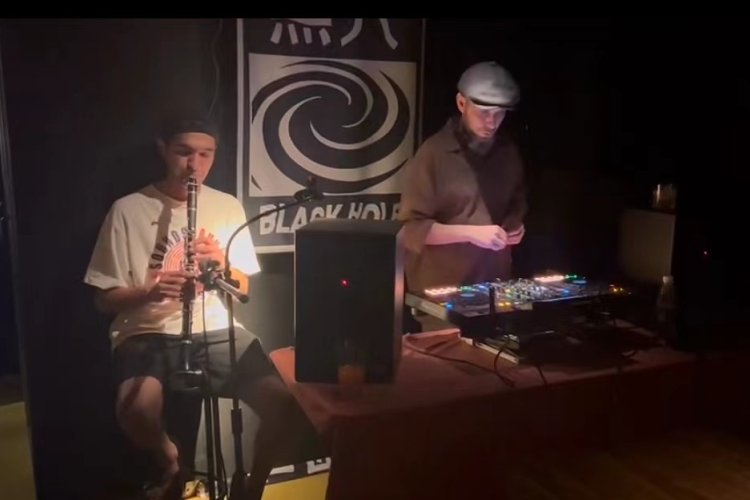Owners of Shanghai Mao to Open Contentious New Beijing Livehouse in Wukesong in July
Usually it's the closure of yet another Beijing music venue that makes headlines, but thankfully not this time. Instead, most of the capital's music buffs will be pleasantly surprised to hear about the opening of a new Mao Livehouse in Wukesong. Others might be irked or intrigued – depending on where their loyalties lie – by the fact that this new Mao will not be opened by the owners of the long-running original Mao on Gulou Dajie but instead Shiji Lemeng Culture Communication Co., the company that has operated Mao Livehouses in Shanghai, Hangzhou, Chongqing, and Kunming after a contentious falling out with Mao founder Li Chi.
Despite the tense history between the Beijing and remaining Mao camps, Shiji Lemeng's Assistant Marketing Director Piao "Tina" Dongmei was quick to downplay word of bad blood.
"Like other fans of Mao Gulou, I felt very sorry and even surprised when I heard the announcement regarding its closure," Piao tells the Beijinger of the livehouse's official shuttering last year, before it subsequently, albeit quietly, continued putting on shows on a regular basis to this day. Piao adds: "It is undeniable that Mao Gulou has had an indispensable impact in introducing indie music to Beijing in the past 10 years."
Instead of Shiji Lemeng infringing on Mao Gulou's turf, Piao sees the opening of the new Wukesong livehouse as something far more positive. She says: "I would never want to see it as a competition between us and any other livehouse in Beijing. Because we are serving people with music, and music is everything ... Our mission is to help indie music’s further thriving and introduce live house as a vibrant life style to audiences in China."

Mao founder Li Chi also tried to be gracious when asked about the Wukesong opening. Though he is by no means thrilled about them using the Mao name, his inner music nerd can't help but be pleased to see another venue opening in Beijing. It's also unlikely that his business will be directly affected – apart from some confusion on the part of gig-goers every now and then – given that the new venue is in the western Beijing boonies. He tells the Beijinger that he was first inspired to open Mao during a visit to Tokyo in his youth, where he saw numerous music venues thriving and quickly longed for Beijing to have an equally healthy scene.
"My intention from the very beginning of opening Mao was to help provide a better venue for young bands," he says. "And my deepest wish was always to see more and more professional venues established in China. So I'm happy to see conditions like this now."

Eric de Fontenay, founder of music Eric de Fontenay, Founder MusicDish China says the Wukesong Mao will be a welcome addition to Beijing’s music scene. "Look, I love the original Mao Livehouse. It has been such a key to the indie rock scene here for so many years and I personally have many fond memories. So might it (the opening of the Wukesong Mao) rub some people the wrong way? Sure. But this has been a longtime coming, so no one should be surprised." He goes on to praise Shiji Lemeng's handling of Mao shows in other cities, adding: "Of course, things are done a little differently here is Beijing than Shanghai, so how they decide to run the livehouse and work with bands and promoters will be key."
That sentiment is echoed by Lolly Fan, marketing supervisor at Maybe Mars Records (which has signed many local bands and coordinates numerous Beijing gigs). She is quick to point out the benefits of having a live house outside of the saturated Gulou area, making the Wukesong Mao particularly appealing to students in Haidian or any attendees looking to park their cars in more spacious locales. Fan adds: "Competition between venues can bring self-improvement, which is good for bands and audiences... Besides, the controversy between two different Maos is already yesterday’s news."
Li Chi, however, isn't quite so eager to lay that point to rest. He says: "It is their (Shiji Lemeng's) choice to use Mao as their title. But almost everyone in this town knows I'm the founder of Mao. So all we need to solve is the issue of them using the Mao name as we do."
Indeed, the Mao founder clearly longs to regain ownership of that moniker, saying that, "maybe one day none of their venues will not be called Mao in any city. But regardless, seeing more and more venues opening in China is my dream come true."
Despite that lingering point of contention, Shiji Lemeng is clearly eager to move ahead with establishing its Wukesong Mao. Though no specific opening date has been announced, a poster for the forthcoming venue is prominently on display on its outer wall (in the top photo).
Piao says the livehouse will open in July, and she her colleagues plan to host at least 150 gigs there per year, featuring a variety of genres across the rock, hip-hop, and electronica spectrum. She adds that the venue will be about 700 square meters and have a capacity of approximately 1,000 people. The venue's specific address, in Mandarin, will be 北京市海淀区五棵松乐视体育生态中心西 50米.
The Beijinger will follow up with more details about the Wukesong Mao once they are available.
More stories by this author here.
Email: kylemullin@truerun.com
Twitter: @MulKyle
WeChat: 13263495040
Photo: Courtesy of Mike Wester, Li Chi







